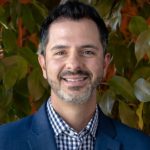Commentary on recent JAMA Oncology article – provided by Dr Lucas Tims
 A recent article entitled “Complementary Medicine, Refusal of Conventional Cancer Therapy, and Survival Among Patients With Curable Cancers” published in JAMA Oncology has created quite a stir among the integrative medicine community (as well as the general public) due to it’s bold headline and study results which paint a negative picture for cancer patients looking to benefit from therapies outside of the conventional guidelines. Many professional groups and alliances, such as the Society for Integrative Oncology (SIO) and the Oncology Association of Naturopathic Physicians (OncANP) have issued formal statements asking for the article to be retracted, and for good reason. Let’s look at the facts.
A recent article entitled “Complementary Medicine, Refusal of Conventional Cancer Therapy, and Survival Among Patients With Curable Cancers” published in JAMA Oncology has created quite a stir among the integrative medicine community (as well as the general public) due to it’s bold headline and study results which paint a negative picture for cancer patients looking to benefit from therapies outside of the conventional guidelines. Many professional groups and alliances, such as the Society for Integrative Oncology (SIO) and the Oncology Association of Naturopathic Physicians (OncANP) have issued formal statements asking for the article to be retracted, and for good reason. Let’s look at the facts.
This retrospective observational study, carried out by a team from Yale Cancer Center, looked at a very large cohort of 1,901,815 patients who had been diagnosed with nonmetastatic breast, prostate, lung or colorectal cancer between 2004 and 2013. Among this large cohort of patients, only 258 were identified as patients who chose to forgo conventional cancer treatment for complementary and alternative medicines (CAM). This group was matched against a control group of patients who did undergo conventional treatment and the results showed the CAM group was purportedly associated with poorer 5-year overall survival (82.2% vs 86.6%, P=.001) compared to controls.
Now, if you were to come across this article and only look at the conclusion (which is quite honestly what most people do), this may cause you to think not only is CAM not effective against these types of cancers, but perhaps it is even harmful. What the authors failed (quite miserably) to point out is the stark difference between “alternative” and “complementary” medicines. Quite often these two terms get lumped together and without a good understanding of their meanings and roles. From the OncANP’s formal response:
In their article, Johnson, et al. attempt but fail to clearly define the subset of patients
who choose “alternative” cancer therapies (the term “alternative” is defined as a
“substitute” or “replacement” for proven therapies) and who, refuse or delay conventional
treatment. It does not differentiate these patients from those using complementary cancer
care (the term “complementary” is analogous to “alongside” or “in tandem with”).
The present study found that patients who choose to pursue alternative therapies
(not in coordination with oncology care) demonstrate consistently poorer outcomes.
The reported finding is not representative of those patients who choose integrative
and complementary cancer care. An integrative approach is, in fact, associated with
better patient outcomes.
The term integrative oncology is much more appropriate for what naturopathic doctors and other evidence-based holistic practitioners provide to cancer patients. It is supportive and not a substitute for conventional care. In a way, the central message of the article reinforces the philosophy and benefits of integrative oncology which is to use therapies to reduce side effects, to optimize conventional care, improve quality of life and prevent recurrence.
From a research quality perspective, there were two glaring study design issues that were brought up in the OncANP’s response. The first being the fact that the 258 patients who were deemed fully analyzable represented less than 0.01% of the study cohort. This is in dramatic contrast to national statistics from multiple surveys which show between 48% and 88% of cancer patients use some complementary medicine. The second issue raised by the OncANP is that the authors failed to address the cohort of patients who may have been deemed poor candidates for conventional therapy due to various other limiting factors, such as comorbid conditions. They reinforce that this again makes a case for an integrative approach:
In these cases, licensed naturopathic physicians (NDs) practicing integrative cancer care
can provide lifestyle, nutrient, botanical and other therapies aimed at preserving quality
and quantity of life. The ND has an important role in advising the patient, particularly
in light of various purported treatment options which may have no benefit and could
lead to harm. NDs work proactively to educate patients on recommended conventional
treatments and evidence-informed natural approaches. This is of great value to patients
as well as conventional providers, who may not have expertise in integrative care.
In summary, despite the poor quality of research which led to this article being published I think it can help the naturopathic and integrative oncology community further their awareness and ignite important conversations between medical professionals. We should look beyond our differences and focus on how we can best bring all walks of medicine together, unified as a multidisciplinary team in order to give patients the safe and effective care they desire and deserve.

Lucas Tims, ND, FABNO
Dr. Lucas is a Naturopathic Oncologist in our Overland Park office
9.4.18





